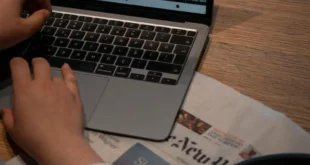A number of war-themed reality shows have become enormous hits in Iraq since the collapse of Saddam Hussein's regime and the subsequent proliferation of satellite channels throughout the country. State-run Al Iraqiya has a hit on its hands with the controversial Terror in the Hands of Justicein which captive insurgents confess to terrorist acts against innocent civilians. Sunni-owned Al Sharqiya’s Labor and Materials is a radical version of Extreme Home Makeover, in which families who lost homes and furniture to bombs receive lavish replacement gifts, often replicating the living room that was blown to smithereens right down to the crystal ashtrays. And Saya Wa Sormaya invites impoverished Iraqis to vie for funds to start a business. Even the popular soap opera Color of Ash is moving, albeit inadvertently, towards realism, as a location leveled by last night’s bomb may necessitate writing an explosion into today’s script. Escapist it isn’t. So why do Iraqis, who live the horror of war every day, want to watch the war on TV?
Rasha Said Redha, an Iraqi wife and mother from Hurriya, a working class neighborhood, epitomizes the country’s TV-viewing public. She cried when Shaima Ebad Zubeir, the hostess of Labor and Materials, presented Umm Hussein, a widow who lost her home, with a new house. “I like the program so much because it expresses the suffering of Iraqis without making it pretty,” she explains. “It shows the reality.”(1)
The reality is certainly grim, yet both Labor and Materials and Terror in the Hands of Justicepurportedly have more viewers than the strictly-entertainment variety show Iraq Star, Baghdad’s answer to American Idol.
The stars and crews of war-themed reality shows take great risks to deliver their product. Zubeir is in mortal danger as a result of her rise to fame. The hostess is a face everyone knows, and these days, fame in Baghdad could be fatal. When she roams the rubble to decide which of the many contestant-victims deserve a new dinette set or a roof, Zubeir is followed by bodyguards hired by the station. For their own protection, the Labor and Materials crew all wear Al Sharqiya baseball caps after a cameraman was attacked by Mahdi Army militants who stole his camera, thinking that he was a foreign journalist.
Zubeir’s success may be measured by her ability to transform of burned-out rooms and shattered windows. In the role model she presents, Zubeir’s viewers see a determination to repair the war’s damage and carry on. Zubeir also is an example of a liberated woman—intelligent, powerful, and able to make a positive change in the lives of war victims. Most importantly, Zubeir is a survivor. “We all have pain that we are dealing with,” she notes. “Every day you delete a number from your mobile phone. We lose people in assassinations, booby traps, explosions. So we eat and drink with death, but we go out to work.”(2)
Another Sharqiya program, Saya Wa Sormaya, explores a topic familiar to most Iraqis: how to survive in the unstable economy brought about by war. The show introduces candidates who want to go into business but can’t afford the startup costs. If they are well-prepared and show potential, they may win the first round. If so, the show gives the candidates enough money to start a small business. In round two, the show revisits the winners to decide whether they deserve to be encouraged with more funds. In a recent episode, 20-year-old Hassan Ali Taber wanted to open a supermarket in his home. The selection committee grilled him on his marital status, professional goals, what he would sell, what kind of competition existed in the area, and how he would deal with challenges in his new business. Taber’s answers impressed the committee enough to get a loan, but when they visited him again a few weeks later, he’d moved the industrial refrigerators into his living room. They decided he hadn’t been industrious enough to warrant continued funds. Another contestant, Fatheya Mohamed, a widow and mother of four, wanted to start a taxi service, but her murky history as a driver, her lack of enthusiasm for auto mechanics, and her gender, jinxed this plan. The show’s producers prefer to avoid downbeat endings; though, and so the selection committee suggested that she create a new business proposal for a bakery or fruit shop.
The most controversial reality show, Al Iraqiya’s Terror in the Hands of Justice does double duty as sensationalist entertainment and anti-insurgent propaganda. The real life confession-drama hopes to convince viewers that insurgents are essentially hired guns, not patriots. Footage for the show is provided by the Interior Ministry and then edited by Al Iraqiyah, which staunchly defends the veracity of the confessors. “Before, the Iraqi people saw the insurgency as a kind of noble resistance,” says an Iraqi viewer who gave his name only as Abduraman. “But when the show aired and people saw how these ‘insurgents’ talk and heard the details of their crimes, there are horrified. None of these people are fighting Americans. They are killing other Iraqis; members of the National Guard and the police. The only victims are Iraqis. This is not resistance.”(3) Confessions come from so-called resistance fighters like Talal R’ad Ismail al Abassi, former Imam of a mosque fired, according to his Terrorinterrogator, for admitting to having sex with men inside the mosque. Abassi explained to the audience that killing is a lucrative business and emphasized that his motive was cash and not loyalty to Islam or Iraq. Another suspect, bruised and battered Qahtan Khalid, informed viewers that he’d killed ten policemen to avoid being slaughtered himself.
By telling the stories of individual hit men, Terror hopes to undermine the insurgency by characterizing it as a as a chaotic band of opportunists and terrified draftees. Mishan Jabouri, a Sunni politician in the national assembly, however, believes the confessions are fabricated to sway public opinion. His brother appeared on the show and confessed to killing four men, “but all these deceased are still alive,” says Jabouri. “I don’t know the reason that led my brother to make such untrue claims.”(4) The reason may be linked to the confessors’ treatment in custody and the possibility of their being tortured. Shortly after Khalid’s episode aired, his corpse was sent to his father. The Iraqi Human Rights Ministry has since opened an investigation into his death.
In times of disaster, fear and mourning become chronic conditions. In Iraq, people’s perspectives are so informed by the horror of war, that it seems nothing less dramatic than the horror of war can be guaranteed to draw viewers. “For the rest of the world, reality TV is a form of entertainment,” says Labor and Materials director Ali Haroon, adding that in Iraq, a shattered country, reality TV “expresses a kind of burning pain. We deal with broken cities and destitute people. So this is reality TV with a flavor of Iraqi pain."(5)
With reporting by Usama Najeeb, TBS associate editor.
 Arab Media & Society The Arab Media Hub
Arab Media & Society The Arab Media Hub




